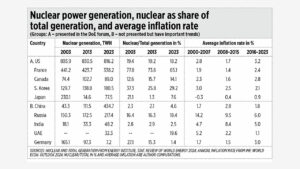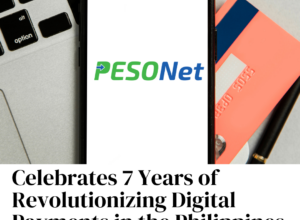Philippine government told to boost digital infrastructure in countryside

By Beatriz Marie D. Cruz, Reporter
RURAL micro-, small- and medium-sized enterprises (MSMEs) are among the most affected by the Philippines’ lack of an efficient digital infrastructure, which could hinder the country’s economic growth and competitiveness, analysts said.
“Many Philippine MSMEs show willingness to adopt digital practices, but their capacity varies,” Philippine Chamber of Commerce and Industry President Enunina V. Mangio said in a Viber message.
“Urban-based MSMEs generally have better access to digital tools and training, while those in rural areas face limitations due to lack of internet access, digital skills and financial resources,” she added.
MSMEs have been hard-pressed to integrate digital practices in streamlining their operations. It helps them process orders faster, manage inventories, market their products and improve customer engagement.
Digital tools have also been used for cashless payments and better logistics, while cloud-based tools have helped lower infrastructure costs.
Known as the “backbone” of the economy, MSMEs account for 99.6% of business establishments in the country, according to the Philippine Statistics Authority (PSA).
Latest data from the PSA showed that the National Capital Region had the most number of MSMEs at 204,844, followed by Calabarzon (163,710), Central Luzon (139,912), Central Visayas (79,689), Western Visayas (75,553) and the Davao region (61,461).
But limited access to affordable high-speed internet in many parts of the country make it challenging for MSMEs to sustain a strong online presence and easily accommodate customer needs, Ms. Mangio said.
“This infrastructure gap affects rural MSMEs the most, creating a digital divide that can lead to reduced competitiveness and growth.”
Mobile broadband in the Philippines is one of the most expensive in the Association of Southeast Asian Nations, with its per capita gross national income about 1.5 times the regional average, the World Bank said.
Peddlr, a mobile application that helps MSMEs manage their operations through inventories, marketing and transactions, said there are still many “dead spots” in rural areas, affecting the growth of small firms there.
“For example, if you go to Bohol, most of the stores don’t accept credit cards and QR (quick response) codes because there’s no signal,” Peddlr founder and Chief Executive Officer Nel Laygo told BusinessWorld on the sidelines of a Nov. 7 event.
The mobile app, which caters to rural MSMEs, has about 200,000 active users across 1,400 cities and municipalities. It has allowed merchants to access the app offline.
However, users would still need internet access for tasks like downloading or sending their data to the server for backup purposes, Mr. Laygo said.
Ronald B. Gustilo, national campaigner for Digital Pinoys, said many MSMEs remain hesitant to adopt digital practices due to lack of awareness or general distrust in digital tools.
“Some just simply do not know how to use it or which tools they can actually use,” he said in a Viber message. “Some actually do not trust digital tech due to the problems that come along with using it or due to the issues that continuously hound digital services.”
The Bangko Sentral ng Pilipinas and National Privacy Commission are set to investigate electronic wallet GCash after users reported unauthorized cash deductions from their accounts on Nov. 9.
For more MSMEs to go digital, the government should bolster infrastructure especially in rural areas to increase access to high-speed internet, Ms. Mangio said.
It should also work with educational institutions and the private sector to increase digital literacy and training on topics such digital marketing and cybersecurity.
To ease the financial burden for digitalization, the government may also consider providing grants, loans and subsidies to MSMEs so they could adopt digital technologies. It could also offer tax breaks for tech-related expenses, Ms. Mangio added.
The government should also create state-backed e-commerce platforms and digital payment solutions specifically designed for MSMEs.
Finally, it must simplify regulatory processes and ensure data privacy to build public trust in digital transactions.
“Ensuring that the government will be on top of the situation if a digital service that MSMEs usually use [faces a] problem is very important if we want MSMEs to adopt digital practices,” Mr. Gustilo said.




